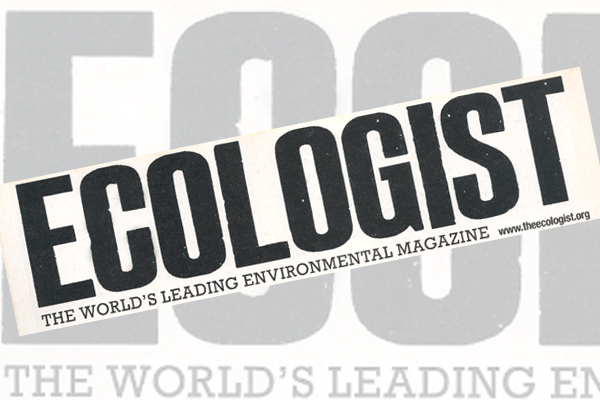Editorial: Sustaina-bull

There was a time when sustainability was a laudable concept. Today it is often a sales gimmick. Tag the word ‘sustainable’ on to anything and it becomes a niche commodity, a way to gain advantage in an increasingly competitive marketplace.
The travel business is a good case in point. You can hardly open a newspaper or magazine without seeing articles and ads for eco travel. Often these involve flying to some far-flung pristine environment to ‘experience’ nature (in our darker moods in this office we call it ‘nature porn’). As Paul Miles points out in his article (page 14), tourism can sometimes be a force for good, but often only over the short term. This is because tourism is first and foremost a business, and over the long term, governments in prime tourist destinations are often more interested in maintaining tourist economies than ecosystems, even if it means unsustainable development, environmental destruction, displacement, cultural conflicts and unacceptable working practices
Much the same can be said of the fish farming trade. The notion of ‘sustainability’ and saving rare and under-pressure species is often invoked as a good reason to breed the ‘tigers of the sea’, such as salmon and even tuna, in cages. This month’s investigation into the salmon feed industry (page 24) illustrates the unsustainability of a practice that scours the seas clean of small fish, ploughs under rainforest to grow soya and deprives local people of their livelihoods.
With farmed fish there are other issues too, of course: animal cruelty, overcrowding, stress and the need forcefully to inject these captive carnivores with hormones to get them to breed in confinement. It also challenges some of our notions of ‘local is best’. In the UK, Scottish farmed salmon could be considered ‘local’ – but is it really sustainable?
The word ‘sustainable’, like ‘organic’, ‘natural’ and ‘eco’, has been co-opted by marketeers to the point where it is in danger of losing all meaning. Yet sustainability is not just a marketing tool: it is a keystone concept in environmentalism. It’s the complex concept that drives most of our disagreements with business, with NGOs, with each other – and even with friends. It requires a kind of double vision to see the big picture and the tiny detail simultaneously, and the courage not to become paralysed by that paradox. As a new year approaches, my hope is that we can all keep moving forward and embrace those difficult but necessary changes that make our lives, and our world, truly sustainable.
- This article first appeared in the December/January 2008 edition of the Ecologist.












